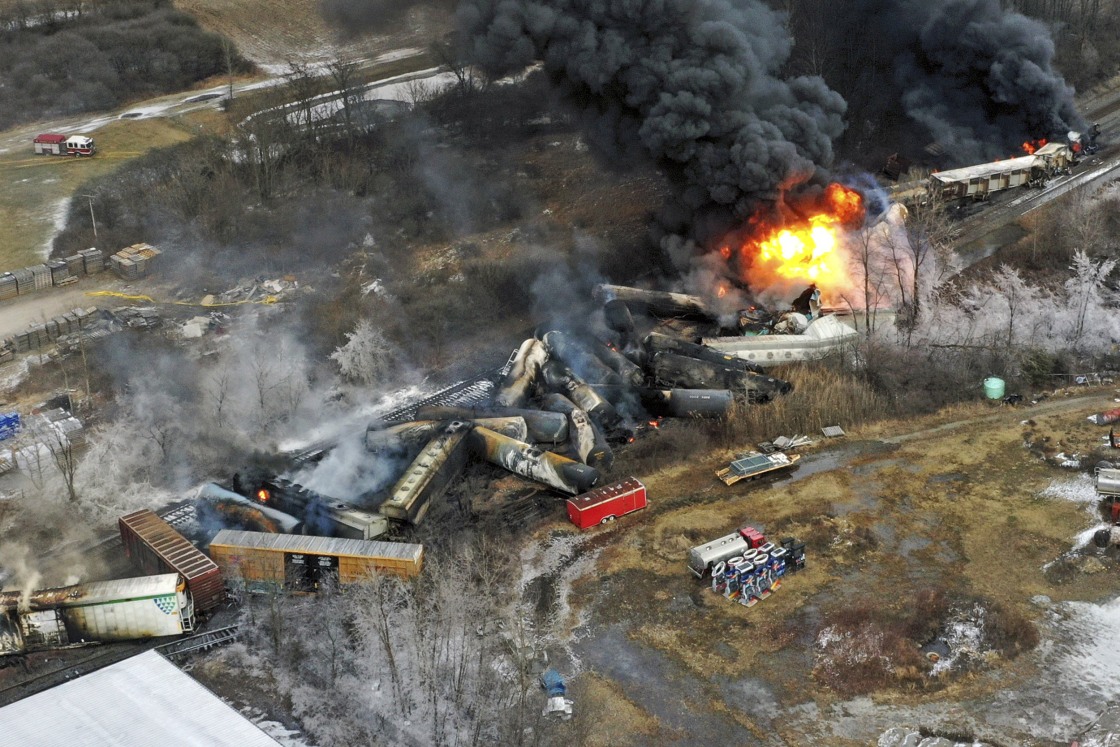Earlier this month (Feb 3), by the border of Ohio and Pennsylvania, the town of East Palestine reported seeing a large plume of smoke. The cloud of smoke was caused by a train that derailed after a mechanical issue with a few of the wheel axles. The train was carrying vinyl chloride, an extremely toxic and flammable gas that was fatal if inhaled. Governor DeWine said the Ohio Department of Health would have to allow the chemical to safely run into a collecting trench, where it would be safely handled and removed. His statement said that this collection method is the safest removal option as of right now, and the best explosion preventative measure. Seeing as the gas was volatile at the time of the explosion, he ordered an evacuation of anyone living within a two mile radius. Around 5,000 people were displaced but were given refuge at two evacuation centers nearby. 911 emergency centers for that town have had to relocate, with assurances that emergency services wouldn't be affected, and schools within this area have been closed for the coming week. A shelter in place has been enacted, and the town will remain closed until all the chemical run off has been safely handled. As of February 6th, no other news about citizens going home have been released.
Wednesday Morning Open Thread: Moving On
29 minutes ago

1 comment:
The Ohio train derailment highlights a problem which most people don’t often consider: the safety of the railroads. A significant part of the goods which travel across the United States do so by rail. Shipping containers go straight from ships to rail cars in many cases, as rail is the most economical way to ship large amounts of goods far distances. In the age of instant delivery and people wanting items quickly, undoubtedly corners are cut on safety, and accidents are more likely to occur. There is always a conflict between speed, efficiency, and regulations, so the railroads no doubt have pushed back over the years on any regulations which would impact their operations, even if in the name of safety. The cause of the accident was apparently an overheated wheel bearing, and some have said better warning systems for this type of issue would have prevented this. Of course, these types of systems cost money, take time and effort to install, so hence railroad companies have been reluctant to adopt such systems. The government will no doubt take a look at regulations around safety and make some changes, or at least propose some. It is unfortunate that is often takes a tragedy to make change happen, but if better safety measures come out of this, that will at least help to prevent some accident in the future.
Post a Comment